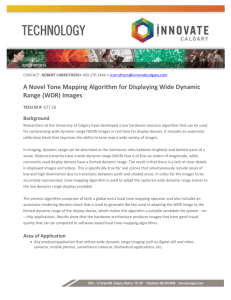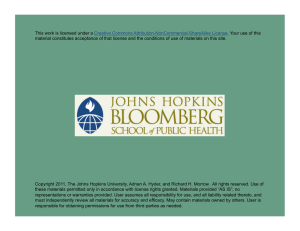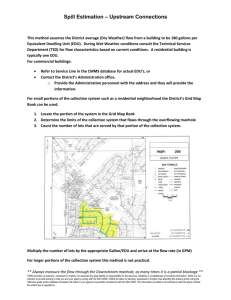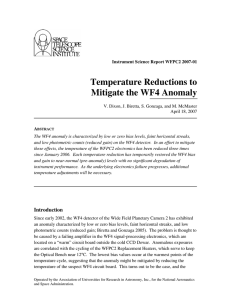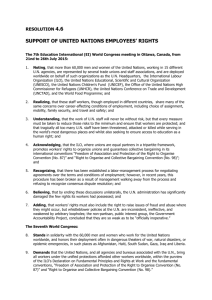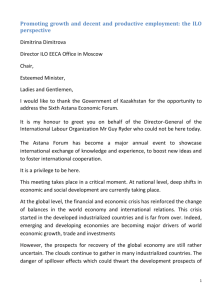Peter Bakvis 02.10.2012 01:02
advertisement
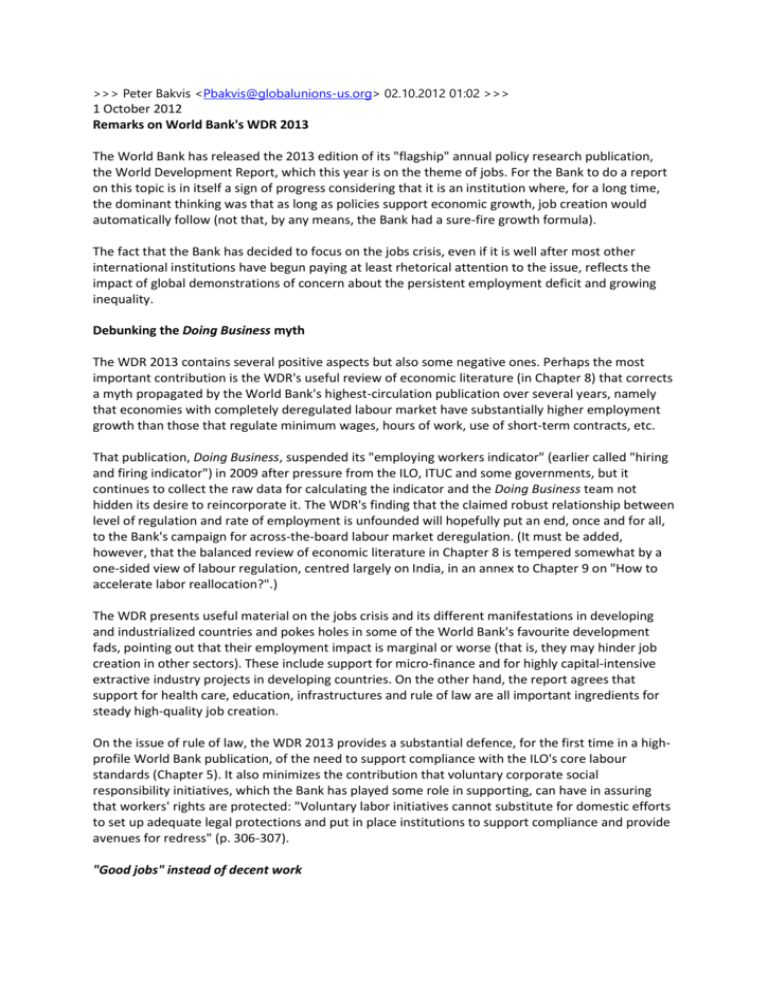
>>> Peter Bakvis <Pbakvis@globalunions-us.org> 02.10.2012 01:02 >>> 1 October 2012 Remarks on World Bank's WDR 2013 The World Bank has released the 2013 edition of its "flagship" annual policy research publication, the World Development Report, which this year is on the theme of jobs. For the Bank to do a report on this topic is in itself a sign of progress considering that it is an institution where, for a long time, the dominant thinking was that as long as policies support economic growth, job creation would automatically follow (not that, by any means, the Bank had a sure-fire growth formula). The fact that the Bank has decided to focus on the jobs crisis, even if it is well after most other international institutions have begun paying at least rhetorical attention to the issue, reflects the impact of global demonstrations of concern about the persistent employment deficit and growing inequality. Debunking the Doing Business myth The WDR 2013 contains several positive aspects but also some negative ones. Perhaps the most important contribution is the WDR's useful review of economic literature (in Chapter 8) that corrects a myth propagated by the World Bank's highest-circulation publication over several years, namely that economies with completely deregulated labour market have substantially higher employment growth than those that regulate minimum wages, hours of work, use of short-term contracts, etc. That publication, Doing Business, suspended its "employing workers indicator" (earlier called "hiring and firing indicator") in 2009 after pressure from the ILO, ITUC and some governments, but it continues to collect the raw data for calculating the indicator and the Doing Business team not hidden its desire to reincorporate it. The WDR's finding that the claimed robust relationship between level of regulation and rate of employment is unfounded will hopefully put an end, once and for all, to the Bank's campaign for across-the-board labour market deregulation. (It must be added, however, that the balanced review of economic literature in Chapter 8 is tempered somewhat by a one-sided view of labour regulation, centred largely on India, in an annex to Chapter 9 on "How to accelerate labor reallocation?".) The WDR presents useful material on the jobs crisis and its different manifestations in developing and industrialized countries and pokes holes in some of the World Bank's favourite development fads, pointing out that their employment impact is marginal or worse (that is, they may hinder job creation in other sectors). These include support for micro-finance and for highly capital-intensive extractive industry projects in developing countries. On the other hand, the report agrees that support for health care, education, infrastructures and rule of law are all important ingredients for steady high-quality job creation. On the issue of rule of law, the WDR 2013 provides a substantial defence, for the first time in a highprofile World Bank publication, of the need to support compliance with the ILO's core labour standards (Chapter 5). It also minimizes the contribution that voluntary corporate social responsibility initiatives, which the Bank has played some role in supporting, can have in assuring that workers' rights are protected: "Voluntary labor initiatives cannot substitute for domestic efforts to set up adequate legal protections and put in place institutions to support compliance and provide avenues for redress" (p. 306-307). "Good jobs" instead of decent work On the negative side, one of the most problematic elements is the WDR's decision to put aside the ILO's Decent Work concept and substitute one of its own, which it calls "`good jobs for development". The report offers this summary definition: "Good jobs for development are those that make the greatest contribution to society, taking into account the value they have to the people who hold them, but also their potential spillovers on others" (p. 154). The WDR does not make it easy to understand what this vague concept means in practice, especially when it adds that "jobs agendas are … inherently country specific" (p. 153). It does specify that jobs that do not respect CLS "are unequivocally bad [and] should not be considered jobs" (p. 153). But when it states that good jobs can include informal economy jobs where such rights are not enforced, one wonders how deep the "unequivocal" commitment to CLS is. As for jobs that are not good for development, the report makes abundantly clear that they include employment in "bloated" public sector entities by using the term not once but three times (on pp. 17, 154 and 163). This unjustified denigration of public sector employment is not the only instance in the WDR 2013 where some of the World Bank's deeply ingrained biases show through. Another is in the section that repeats the decades-old Bank credo in support of further unconditional trade liberalization, including of services, a theme to which it devotes three pages (Chapter 9). By contrast, the report expresses no support for measures to prevent a recurrence of the financial sector's self-inflicted meltdown that led to the greatest collapse of employment in 80 years, other than to mention that the "financial crisis of 2008 has reopened heated debates about the appropriate level of regulation of the financial sector" (p. 294). Another problematic approach is that on "social insurance". The WDR seems to have decided that the more common term of "social protection" is a bad word, which it may have done in order to avoid mentioning the now widely-supported concept and objective of the Social Protection Floor. First developed by the ILO, the entire UN system endorsed the SPF in 2011, as did the G20 at its Cannes Summit last November. Even the IMF supports the concept to the extent of working with the ILO in designing country-specific SPF financing mechanisms. Social insurance is a narrower concept than social protection; in many countries social services and income support schemes are not all established on an insurance basis, which is a market-based notion of purchasing protection in case of a possible contingency and involving pooling of risk. The WDR's insistence that all social protection is insurance leads to occasional nonsensical statements, such as the following: "Concerns about job search disincentives and hidden redistribution have led to some interest in unemployment insurance savings accounts [which are in fact not insurance] … Some countries have adopted these savings accounts as an alternative approach to insurance-based programs" (p. 273). For a report on jobs, the WDR does not contain a great deal of information about the trade union movement, although what it does include is mostly positive, such as observing its role in reducing income inequality through collective bargaining and in achieving broader social goals. Strangely, a passage on improving working conditions and workers’ rights in developing countries mentions the role of multinationals and civil society organizations but not trade unions (p. 241). Detailed boxes that focus on specific roles of trade unions are provided on the following topics: Self Employed Women's Association of India; efforts of domestic workers' unions to obtain an ILO convention; Cambodia's Better Factories programme; South Africa's collective bargaining councils; new forms of collective bargaining in China; and Germany's reduced working time programme. Peter Bakvis ITUC/Global Unions - Washington Office 888 16th Street NW, suite 400 Washington, DC 20006 Phone: 202-974-8120 Fax: 202-974-8122 E-mail: pbakvis@globalunions-us.org
